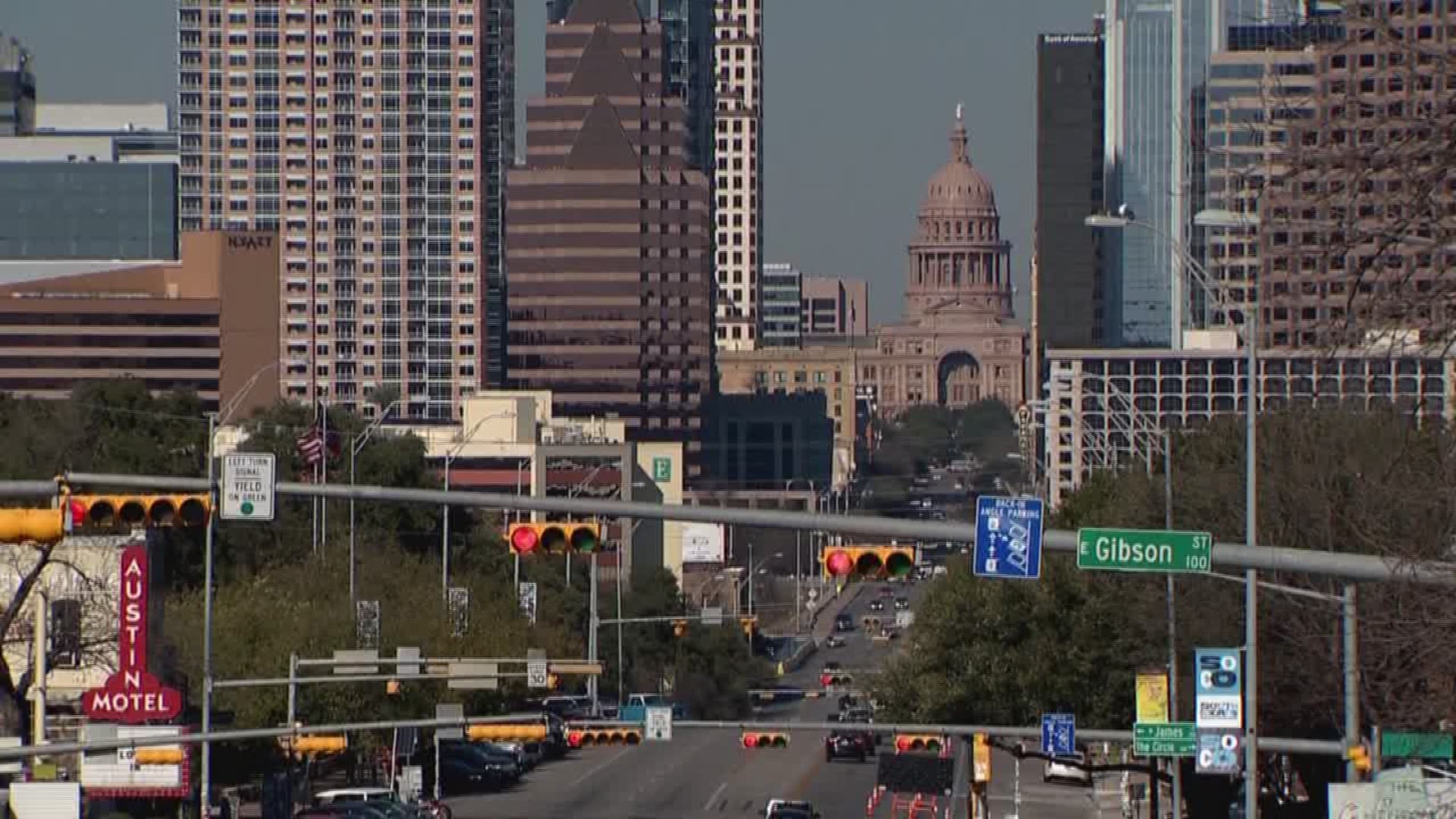The things that make Austin unique, special, desirable are the things that triggered Red Wassenich to coin a phrase we've all come to know: Keep Austin Weird.
Red Wassenich, an ACC professor, coined the phrase back in 2000.
“It was just a little joke to me that got traction,” he said. “I hit a nerve with the city that was worried about how fast it was changing.”
"I just make bumper stickers and I did a book. I’ve lost money on it probably," he said.
“Austin is weird when it comes to that, because the people are so approachable, are so friendly, and that's really important to be around people that want to get the best things out of life,” said Austin resident Jeff Mettler and Special Projects Manager at HomeSlice Pizza.
The live music Capital of the world has just been named the best place to live by US News & World Report. It's the number one place for small businesses and the number one place in the country for entrepreneurs.
“We’re right where you want to be,” said Charisse Bodisch, senior Vice President of Economic Development for the Austin Chamber of Commerce. “Generally companies want to be here and grow here. They want to be here because they want to tap into that energy.”
Even a city that's growing experiences change and loss.
- 17 businesses closed or downsized last year.
- 1200 jobs lost, a lot less than most cities its size.
- Still, Austin has the fifth lowest unemployment numbers in the country
“The closings are small, usually companies are acquired,” said Bodisch.
But it's the kinds of businesses we see closing that have people talking.
“I’m very sad,” said Juanita Navarro, a regular customer of El Gallo, which closed in January. “It's like losing a family member.”
Austin lost at least 52 restaurants last year. Places like El Gallo, which has been in Austin for 60 years.
“It’s just gotten difficult to work 14, 15, 16 hours a day every day. It's time to leave while we're on top,” said Abel Kennedy Gonzalez.
Property taxes didn’t push him out, but it is a problem for a growing number of businesses.
“It's harder and harder to open up that analog record store on South Congress, or by campus, or downtown because of rent,” stated Jeff Metler.
'Home Slice' has found a way to survive and thrive. It opened in Austin in 2001 at a time when layoffs were abundant.
“That's the great thing about Austin. We are able in this one moment to have respect for the past for what came before us,” said Philip Korshak, kitchen manager at Home Slice Pizza. "Like pizza, it comes together in one piece that is then shared among all. Yeah, that’s the Austin I moved to."
Today, the restaurant remains one of the most popular stops visited by presidents and everyday people searching for all that is still weird along quirky-yet ever evolving South Congress. The area has seen some of the biggest changes in the past few years.
Making long-time Austin residents like Korshak question, “At the end of the day, the ultimate question I think, or the question that was in the beginning, is Austin still Austin? Has it lost that spark? That thing that makes it Austin?"
“I’m gonna say if anything it is stronger and more defined because what I think it means is self-reliance. I think what it means is self-respect. I think what it means is a connection with community. And I think really what it means is just being kind,” said Korsak.
So maybe we need to remember this.
“If you're not growing, you're dying,” reminded Bodisch.
She recalled the Austin of the early 2000's that struggled with layoffs and business closings.
“There are a million things that are going to happen over the next 5 to 10 years and they’re going to happen right here in Austin," Bodisch said. "They’re going to be developed here in Austin.”
Call it growing pains; 'Keep Austin Weird' is now 17 years in the making.
“There's weird stuff it's just different than it used to be,” said Korshak.
“The weirdness is still there,” said Wassenich, who has written his second book “Keeping Austin Weird: a Guide to the Still Ddd Side of Town."" “Yes, it may be behind a giant skyscraper at this point, but it’s still there, and it’s our choice whether we decide to go and find it, or to ignore it, or to write it off as the past.”

